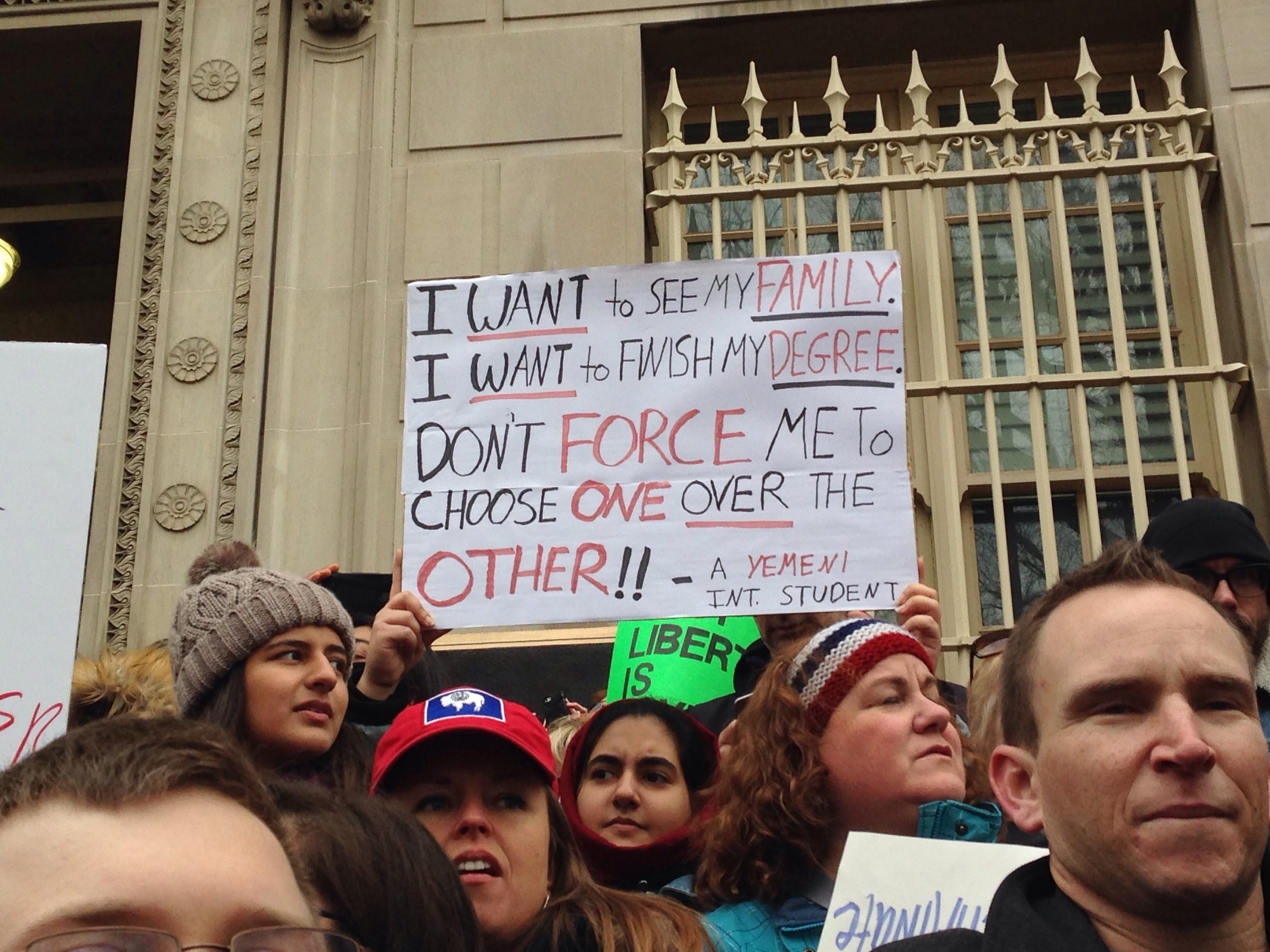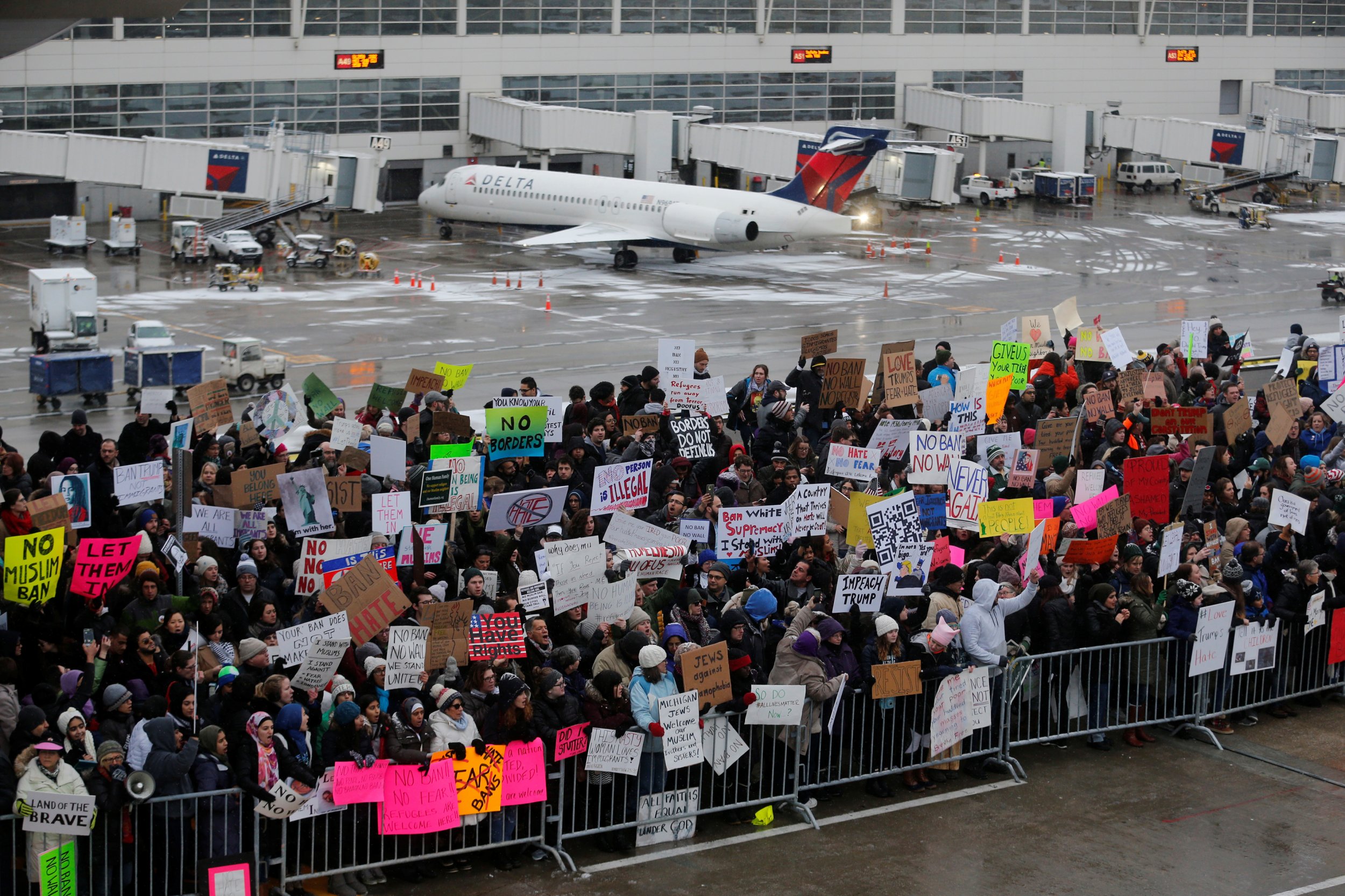
On January 27, 2017, President Donald Trump signed an executive order entitled "Protecting the Nation from Foreign Terrorist Entry into the United States," which imposed a 90-day travel ban on citizens of seven Muslim-majority countries: Iran, Iraq, Libya, Somalia, Sudan, Syria, and Yemen. The order also indefinitely suspended the US Refugee Admissions Program and imposed a 120-day moratorium on refugee admissions to the United States.
The American-Arab Anti-Discrimination Committee (ADC) immediately condemned the executive order as discriminatory and unconstitutional. In a statement, ADC President Samer Khalaf said that the order "is a shameful attempt to target and discriminate against Muslims and Arabs." Khalaf also said that the order "will make the United States less safe by alienating and isolating Muslim communities."
Legal Challenges to the Travel Ban
The travel ban was immediately met with legal challenges. On January 28, 2017, the American Civil Liberties Union (ACLU) filed a lawsuit in federal court on behalf of two Iraqi refugees who were detained at John F. Kennedy International Airport in New York after they were denied entry into the United States under the travel ban. The ACLU argued that the travel ban violated the refugees' constitutional rights to due process and equal protection under the law.
On February 3, 2017, a federal judge in Seattle issued a temporary restraining order blocking the implementation of the travel ban. The judge ruled that the travel ban was likely unconstitutional because it discriminated against Muslims. The Trump administration appealed the ruling, but on February 9, 2017, the 9th Circuit Court of Appeals upheld the lower court's ruling, allowing the travel ban to remain blocked.
On June 26, 2017, the Supreme Court ruled 5-4 to uphold the travel ban. The Court held that the ban was not a "Muslim ban" and that it was a legitimate exercise of the President's authority to protect the national security.
Impact of the Travel Ban
The travel ban has had a significant impact on Muslim communities in the United States. Many Muslims have reported feeling scared and isolated, and some have even said that they are considering leaving the country. The ban has also had a negative impact on the US economy. The travel ban has also had a negative impact on the US economy. According to a study by the National Bureau of Economic Research, the travel ban could cost the US economy up to $18.7 billion in lost exports and tourism revenue.
The travel ban has also been criticized by many foreign leaders and international organizations. The United Nations High Commissioner for Refugees (UNHCR) has said that the ban is "a setback for refugee protection." The European Union has also expressed its concern about the ban, saying that it is "discriminatory and counterproductive."
Conclusion
The American-Arab Anti-Discrimination Committee's dismissal of Trump's travel ban executive order is a reflection of the widespread opposition to the ban. The ban is discriminatory, unconstitutional, and harmful to the US economy. It is a setback for refugee protection and a violation of the human rights of Muslims around the world.. We must continue to fight for the rights of all Americans, regardless of their religion or national origin.

Comments
Post a Comment